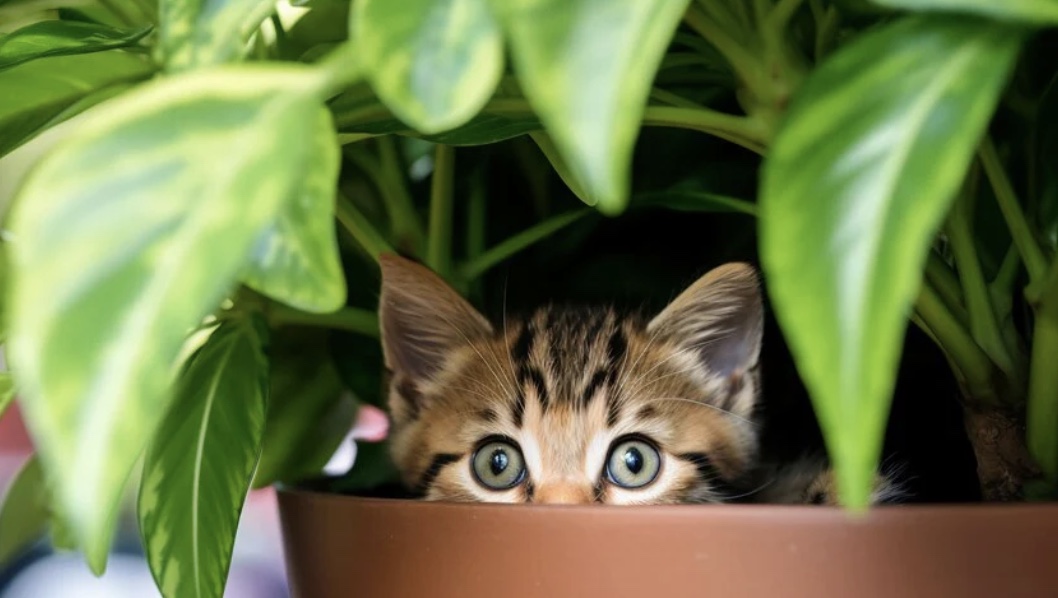
Cats and Plants: Cohabitation
Written by A.R.F. Volunteer Hannah D.
Curiosity, unfortunately, can kill the cat, if the human in the equation is not careful. Hopefully all cat owners are aware of how incredibly toxic lilies are to cats. The list of plants that do not mix well with cats is quite long, as demonstrated by these sites: ASPCA, Happy Tails Emergency Veterinary Clinic, Cats Protection.
The safest option for cat owners is to have absolutely no plants in the same home as their cat(s).
However, many cat owners want to grow household plants and/or herbs, and there are ways to do so responsibly. The second safest option is keeping all plants in a room that the cat cannot enter. It’s the same mindset as keeping toddlers away from items that could hurt them: they’re going to look, so sometimes it’s better to separate them entirely. Direct their curiosity elsewhere.
The cat’s temperament also plays a role. Some cats show no interest in plants, which is convenient for the owner. Some cats will try to eat—or at least investigate—anything and everything they can reach. It’s very important to know your cat and to take note of how they interact with new environments.
If you’re confident that your cat will leave the plants alone and that the plants you have are non-toxic, then you can be both a plant parent and a pet parent more easily.
Experienced cat-and-plant parents are happy to share tips and tricks. The Urban Jungle Bloggers polled their audience and compiled a list of their best suggestions. They not only provide a list of cat-safe plants, but they also highlight the option of keeping less safe plants in creative, hard to reach places. Hanging plants or pots mounted on walls are good options – as long as the cats aren’t determined and athletic enough to reach these anyway. To avoid messes, pick pots that are bottom-heavy and difficult to tip over. Certain scents might deter cats entirely. For many cats, having a scratching pole and toys to interact with is far more interesting than stationary plants. If there’s any worry that the plant will become a litter box, place chicken wire or rocks on top of the soil to make it less appealing than the real litter box.
Preventive Vet offers thorough explanations of why cats might find plants appealing in the first place. Plants can provide an interesting sensory experience, which some cats gravitate towards. They also suggest making plants either physically inaccessible or unappealing due to added citrus scents. Both of these sites suggest having cat-safe, cat-specific plants in the home, though this still requires diligence, so it should only be done after much research. Another suggestion is to train the cat to not interact with the plants. Like dogs, cats can be trained, though the methods are different. For many cats, brief distractions are enough for them to stop pursuing the plants.
Above all, know your cats and know your plants. If there are any signs of distress, contact your veterinarian immediately.
If you’re looking to add a cat to your family, look no further than A.R.F.!
